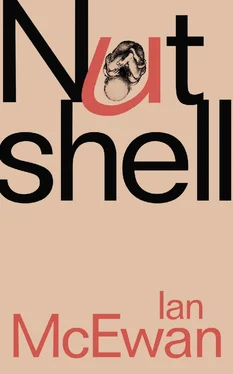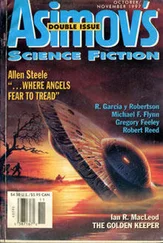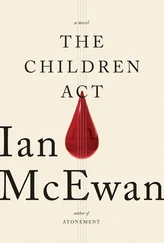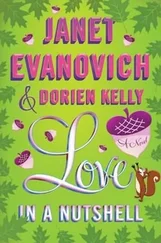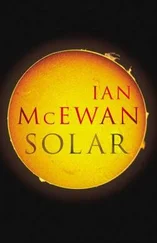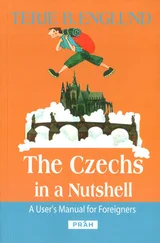ELODIE ELUDES ME, like a half-remembered song — an unfinished melody indeed. When she squeezed by us in the hall, when she was still, in our thoughts, my father’s girl, I listened out for the alluring creak of leather. But no, today she’s dressed in softer style, more colourfully, I think. She would have cut a figure at the poetry event tonight. When she was wailing in distress her voice was pure. But her account of the visit to the mortuary, clutching at her fiancé’s wrist, was a reminder, as each growling sentence trailed away, of the guttural urbane, her tasty fry-up. Now, as my mother extends an arm across the kitchen table to enfold the visitor’s hand in hers, I hear in the vowels the duck’s quack restored. Elodie’s relaxing into my mother’s confidence as she, the poet, praises my father’s poems. It’s the sonnets she loves most.
‘He wrote them in a conversational style, but dense with meaning, and so musical.’
Her use of tense is correct but offensive. She speaks as if the death of John Cairncross has been fully confirmed, absorbed, publicly acknowledged, historically beyond grief like the Sack of Rome. Trudy will mind more than I do. I’ve been conditioned to believe his poetry was a dud. Today, everything is up for revaluation.
Her voice grave with insincerity, Trudy says, ‘It will be a long time before we have the full measure of him as a poet.’
‘Oh yes, oh yes! But we already know something. Beyond Hughes. Up there with Fenton, Heaney and Plath.’
‘Names to conjure with,’ says Claude.
This is my Elodie problem. What is she doing here? She dances like a wild Corybant, in and out of focus. Overpraising my father may be a style of comforting my mother. If so, that’s poorly conceived. Or sorrow distorts her judgement. That’s forgivable. Or her self-importance is bound up with her patron’s. That’s not. Or she’s come to find out who killed her lover. That’s interesting.
Should I like her or distrust her?
My mother loves her and won’t let go of her hand. ‘You’ll know this better than I do. Talent on that scale comes at a cost. Not only to himself. Kind to everyone who isn’t close. Strangers too. And people saying, “Almost as kind as Heaney.” Not that I ever knew or read him. But just below the surface John was in agony—’
‘No!’
‘Self-doubt. Constant mental pain. Lashing out at those he loved. But cruellest to himself. Then the poem gets written at last—’
‘And then the sun comes out.’ Claude has caught his sister-in-law’s drift.
She says loudly over him, ‘That conversational style? One long bloody battle to wrench it from his soul—’
‘Oh!’
‘Personal life wrecked. And now—’
She chokes up on the tiny word that contains the fateful present. On such a day of revaluation I could be wrong. But I always thought my father composed fast, with reproachable ease. It was held against him in the review he once read aloud to prove his indifference. I heard him say it to my mother during one of his sad visits: if it doesn’t come at once, it shouldn’t come. There’s a special grace in facility. All art aspires to the condition of Mozart’s. Then he laughed at his own presumption. Trudy won’t remember. And she’ll never know that even as she lied about my father’s mental health, his poetry raised her diction. Lashing out? Wrench? Soul? Borrowed clothes!
But they’ve made an impression. Cold mother, she knows what she’s about.
Elodie whispers, ‘I never knew.’
Then, another silence. Trudy waits intensely, like an angler whose fly is sweetly placed. Claude starts a word, a mere vowel, severed, I’d guess, by her glance.
Our visitor begins dramatically. ‘All John’s instructions are engraved on my heart. When to break a line. “Never randomly. Stay at the helm. Make sense, a unit of sense. Decide, decide, decide.” And know your scansion so you “disrupt the beat knowingly”. Then, “Form isn’t a cage. It’s an old friend you can only pretend to leave.” And feelings. He’d say, “Don’t unpack your heart. One detail tells the truth.” Also, “Write for the voice, not the page, write for the untidy evening in the parish hall.” He made us read James Fenton on the genius of the trochee. Afterwards, he set the assignment for the week ahead — a poem in four stanzas of trochaic tetrameters catalectic. We laughed at this gobbledegook. He had us singing an example, a nursery rhyme. “Boys and girls come out to play.” Then he recited from memory Auden’s “Autumn Song”. “Now the leaves are falling fast, / Nurse’s flowers will not last.” Why is the missing syllable at the end of the line so effective? We couldn’t answer him. Then what about a poem with the weak syllable restored? “Wendy speeded my undressing, / Wendy is the sheet’s caressing.” He knew the whole of Betjeman’s “Indoor Games near Newbury” and made us giggle. So, for that assignment, I wrote the first of my owl poems — in that same metre of “Autumn Song”.
‘He made us learn our own strongest poems by heart. So we’d be bold at our first reading, stand on stage without our pages. The idea made me nearly faint with fear. Listen, now I’m slipping into trochees!’
Talk of scansion is of interest only to me. I sense my mother’s impatience. This has gone on too long. If I had breath to hold, I’d hold it now.
‘He bought us drinks, lent us money we never gave back, heard us out on boyfriend — girlfriend trouble, fights with parents, so-called writer’s block. He stood bail for one drunken would-be poet in our group. He wrote letters to get us grants, or humble jobs on literary pages. We loved the poets he loved, his opinions became our own. We listened to his radio talks, we went to the readings he sent us to. And we went to his own. We knew his poems, his anecdotes, his catchphrases. We thought we knew him. It never crossed our minds that John, the grown-up, the high priest, had problems too. Or that he doubted his poetry just as we did ours. We mostly worried about sex and money. Nothing like his agony. If only we’d known.’
The fly was taken, the shortening line was taut and trembling, and now the catch is in the keep-net. I feel my mother relax.
That mysterious particle, my father, is gaining mass, growing in seriousness and integrity. I’m caught between pride and guilt.
In a brave, kind voice Trudy says, ‘It would have made no difference. You mustn’t blame yourself. We knew everything, Claude and I. We tried everything.’
Claude, stirred by the sound of his name, clears his throat. ‘Beyond help. His own worst enemy.’
‘Before you go,’ says Trudy, ‘there’s a little something I want you to have.’
We climb the stairs to the hall and then to the first floor, my mother and I moving lugubriously, Elodie close behind. The purpose must surely be to let Claude gather up whatever he must dispose of. Now we’re standing in the library. I hear the young poet’s intake of breath as she looks around at three walls of poetry.
‘I’m sorry it smells so musty in here.’
Already. The books, the library air itself, in mourning.
‘I’d like you to take one.’
‘Oh, I couldn’t. Shouldn’t you keep it all together?’
‘I want you to. So would he.’
And so we wait while she decides.
Elodie is embarrassed and therefore quick. She returns to show her choice.
‘John’s put his name in it. Peter Porter. The Cost of Seriousness . It’s got “An Exequy”. Tetrameters again. The most beautiful.’
‘Ah yes. He came to dinner once. I think.’
On that last word the doorbell sounds. Louder, longer than usual. My mother tenses, her heart begins to pound. What is it she dreads?
‘I know you’ll have a lot of visitors. Thank you so—’
Читать дальше
